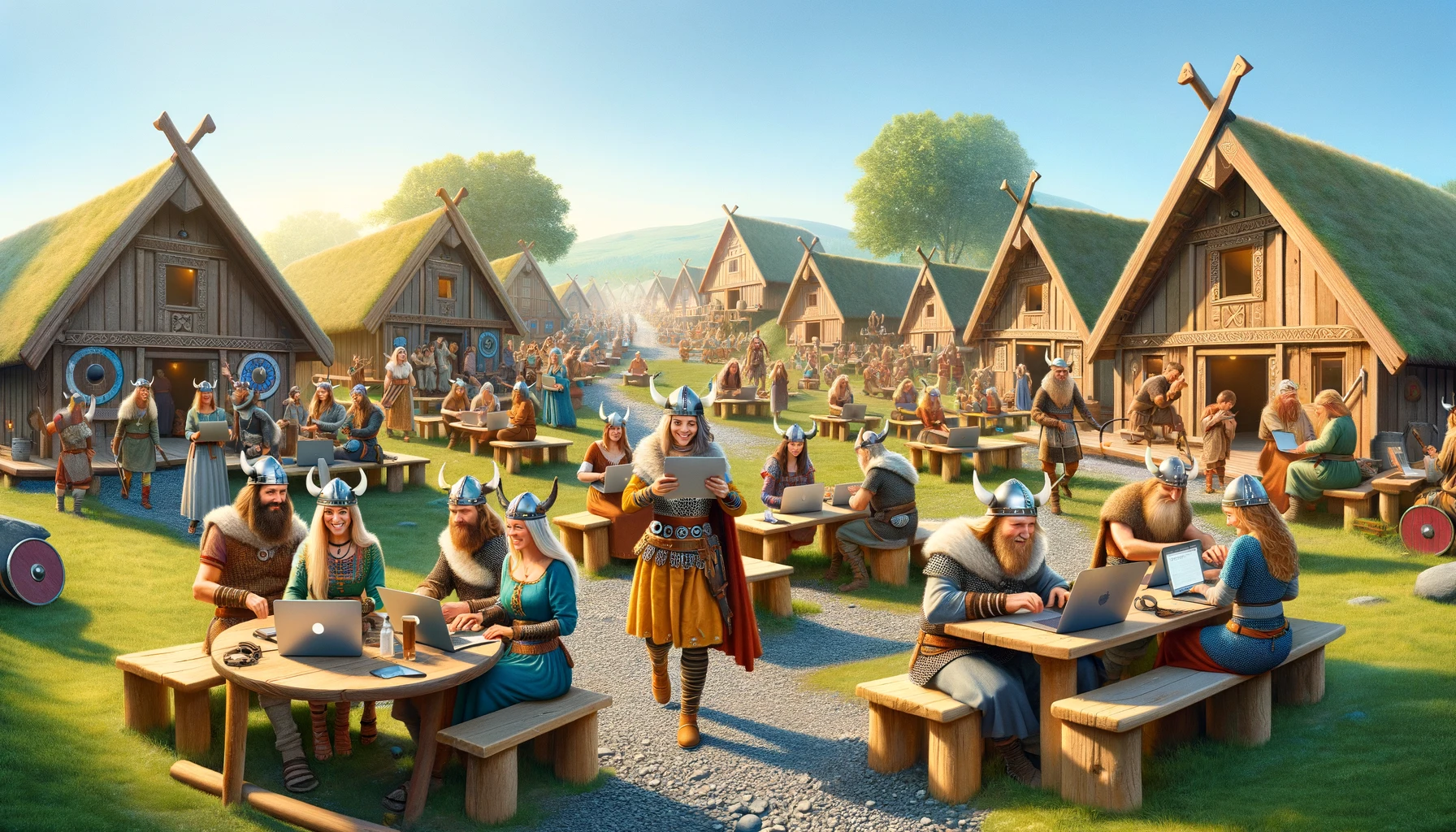Special Session
The Distributed Viking
Cellular Automata, Distributed Dynamical Systems, and Their Applications to Intelligence

at ALIFE 2024
Conference Dates: July 22-26, 2024 - Copenhagen, Denmark
Submission deadline: April 10th, 2024
Organizers
Stefano Nichele, Østfold University College, Norway
Hiroki Sayama, Binghamton University, USA
Chrystopher Nehaniv, University of Waterloo, Canada
Eric Medvet, University of Trieste, Italy
Mario Pavone, University of Catania, Italy
This special session in an initiative of the IEEE CIS Task Force on Artificial Life and Complex Adaptive Systems.
Scope of the special session
Distributed dynamical systems such as Cellular Automata and Random Boolean Networks (and everything in between), have long been used as models to understand computation and self-replication in biology, morphogenesis, gene regulation, life-as-it-could-be, and the universe.
Such complex systems models have been extensively studied mathematically and experimentally in all their different variations, such as synchronous and asynchronous updates, dynamic automata networks that can grow and change their structure including components and interconnection topology, as well as their robustness.
Recent advances of such models, including continuous CA such as Lenia [1] and neural-based CA [2], have been proposed as substrates to study the emergence of a more general intelligence [3, 4], thanks to their propensity to support properties such as self-organization, emergence, and open-endedness.
This special session aims at bridging the gap between the ALife community working with CA and distributed dynamical systems, and the broader AI community interested in exploring concepts from complex systems/self-organization/artificial life for AI research and machine learning, including modular robotics such as voxel-based robots.
[1] Chan, B. W. C. (2019). Lenia: Biology of Artificial Life. Complex Systems, 28(3).
[2] Mordvintsev, A., Randazzo, E., Niklasson, E., & Levin, M. (2020). Growing neural cellular automata. ADistill, 5(2), e23.
[3] Hamon, G., Etcheverry, M., Chan, B. W. C., Moulin-Frier, C., & Oudeyer, P. Y. (2022). Learning sensorimotor agency in cellular automata.
[4] Gregor, K., & Besse, F. (2021). Self-organizing intelligent matter: A blueprint for an AI generating algorithm. arXiv preprint arXiv:2101.07627.
Submission instructions
The submission instructions and submission link are available here
Please note that contributions to our special session have to be submitted through the main conference's submission system.
There are two options for submission:
Special Sessions are part of the conference main program. Contributions to special sessions undergo the same peer review process as other submissions to the conference and will be included in the ALIFE 2024 conference proceedings.
Important dates
Submission: April 10th, 2024
Notification: May 15th, 2024
Contacts
Please feel free to contact us:
Stefano Nichele: stefano.nichele@hiof.no
Hiroki Sayama: sayama@binghamton.edu
Chrystopher Nehaniv: chrystopher.nehaniv@uwaterloo.ca
Eric Medvet: emedvet@units.it
Mario Pavone: mpavone@dmi.unict.it
Previous editions
The Distributed Ghost (ALife 2023)
